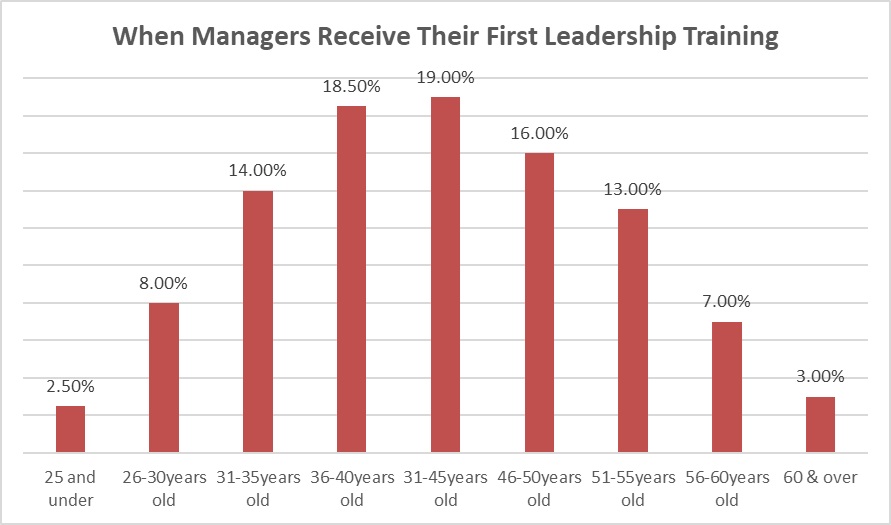
In the bygone era, leadership was the prerogative of a select few who sat at the top of their companies. However, modern organizations are larger, distributed, and more networked. People today spend more time doing intellectual work than manual tasks.
Schedule a call with a Pragati Leadership expert to discuss how we can support your strategic objectives.
Schedule your CallJacob Morgan in his book “The Future Leader” states that most people assume leadership roles in their 20s perhaps as a retail store supervisor or leading a small team within the company headquarters. Unfortunately, these individuals fail to receive formal leadership training until their mid or late 30s and sometimes even during their 40s.

Even in today’s dynamic and fiercely competitive work environments, only a few people undergo formal management leadership training programs when they are first promoted to such roles.
Importance of Management Leadership Training
Remember the joke where the CFO asks the CEO “What happens if we train people and they leave?”. The CEO replies “What happens if we don’t and they stay?”. So why shouldn’t every company develop a comprehensive leadership training program?
Can any organization afford the cost of poor leadership? Higher turnover, lower employee engagement, reduced productivity, inaccurate decisions, and unhappy customers. Companies cannot bear these costs and must focus on developing their existing talent to assume senior roles instead of looking for external fits.
Leadership development is crucial as they are responsible for building capabilities and impacting the success or failure of the companies. Leadership is coexistent with changes and transformational needs. Changes can occur due to technical developments, changes in market conditions, mergers and acquisitions geographical expansions, and more.
These situations offer opportunities and also pose threats and a deep understanding of strategy and corporate culture becomes crucial. Leaders must respond quickly and come up with effective solutions under high-pressure situations. An effective leadership training program can equip leaders with the necessary skills.
Here are some reasons why management leadership training programs are important:
Higher Engagement and Retention
Companies that invest in employee well-being enjoy higher loyalty and engagement, which means reduced turnover. Moreover, training existing personnel is cost-effective as organizations save consultant fees, onboarding costs, and other recruitment-related expenses. People feeling a sense of purpose due to organizational culture are 2.4 times more likely to stay for a longer period. Additionally, companies may see a 147% increase in their earnings per share when talented leaders and employee engagement doubles.
Improved Productivity
The top five leadership skills include influencing others, developing and identifying future leaders, successfully managing change, informed decision-making, and strategic thinking. Unfortunately, less than 30% of companies train their people for these skills. Training leaders with effective skills increases employee productivity. Senior people are equipped to provide direction and ensure employees deliver their best performances. An effective leadership training program may improve organizational outcomes by almost 25%, which further increases when employees at all levels receive the right training.
Effective Change Management
Over 60% of leaders believe decisions today are complicated when compared to a few years ago. Leadership development programs equip participants with strategies and skills that enable them to accurately respond during unpredictable situations. Effective change management skills are crucial during times, such as lay-offs, restructuring, competition, and other situations.
Foster a Collaborative and Positive Work Culture
Companies that invest in training their employees demonstrate caring and inspire and motivate the personnel to meet and exceed performance expectations. Training programs incorporating coaching and mentoring boost morale and improve people’s perception of the company. Participants who receive high-quality training are 4.3 times more likely to visualize a clear development plan. These programs also reinforce organizational mission, values, and vision across all levels.
Develop Trust
People who trust their seniors are three times more innovative. Similarly, individuals with a clear sense of purpose show 9x higher engagement and are 2.4 times more likely to stay with the company. Employees do not like bosses who take credit for their efforts. New-age leaders face several challenges and therefore need to be prepared and show support to their people during challenging situations. Company Leadership development programs rebuild confidence and trust in the company management and ensure existing people are nurtured and trained to assume senior roles in the future.
During current challenging business environments, leadership surpasses traditional beliefs and is a journey of empathy and resilience. Moving further from statistics, there is a deeper story of steering through political unrest, inequality, and global crisis.
Today, in addition to strategy leaders need a heart. Senior personnel need to champion open communication, diversity, innovation, and team spirit. Effective leadership encompasses different qualities and skills and an efficient training program imparts these through innovative strategies.
Share on Social Channels
Our Categories
Categories
- Behaviorial (7)
- Blog (276)
- Certified People Manager Program (5)
- Coaching (9)
- Corporate Trainers (7)
- Developing Collaboration (12)
- Emotional Intelligence Training (12)
- Executive Leadership Program (30)
- First Time Manager Training (13)
- Growth Mindset Course (3)
- Inspirational Leadership (23)
- Inspiring and Successful Leadership Awards (23)
- Leadership Awards (44)
- Leadership Development (125)
- Leading Virtual Teams (6)
- Management Development (29)
- Marketing (2)
- Negotiation Skills Training (8)
- Organizational Transformation (25)
- Others (24)
- Stakeholder Management (3)
- Strategic Leadership Development Program (4)
- VUCA Leadership (2)
- Wholesome Leadership (23)
- Women Leadership (15)
Recent Insights
“Transformational leadership focuses on developing, inspiring, and motivating followers to reach their full potential rather...
“Every expert was once a beginner. Embrace the journey”. Startups face unique challenges and have...
A few years ago, burnout was treated as a personal issue. If someone felt exhausted,...
“Your smile is your logo, your personality is your business card, and how you leave...
Most people think negotiation only happens in boardrooms or during big deals. In reality, it’s...
